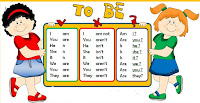
COUNTABLE NOUNS.
Countable nouns are easy to recognize. They are things that we can count. For example: "pen". we can count pens. We can have one, two or three pens or maybe more.
Here are some jmore contable nouns:
- dog, cat, animal, man, person.
- bottle, box, litre.
- coin, note, dollar.
- cup, plate, fork.
- table, chair, suitcase, bag.
COUNTABLE NOUNS CAN BE SINGULAR OR PLURAL:
My dog is playing.
My dogs are playing.
WE USE THE INDEFINITE ARTICLE A/AN WITH COUNTABLE NOUNS:
A dog is an animal.
WE CAN USE SOME AND ANY IN COUNTABLE NOUNS.
I have got some pens.
Have you got any pens.
When can I use HOW MUCH or HOW MANY?
UNCONTABLE NOUNS.
Uncontable nouns are substances, concepts... that we cannot divide into separate elements. We cannot "count" them.
We can count "bottles of water", but cannot count "water" itself:
You cannot count.
- music, art, love, happiness.
- advice, infortmation, news.
- furniture, luggage.
- rice, sugar, butter, water.
- electricity, gas, power.
- money, currency.
WE USUALLY TREAT UNCOUNTABLE NOUNS AS SINGULAR. WE USE A SINGULAR VERB:
This news is very important.
Your luggage looks heavy.
WE CAN USE SOME AND ANY WITH UNCOUNTABLE NOUNS:
I've got some money.
Have you got any rice?
PRINTABLE ACTIVITY:
Download this .pdf
HERE ARE SOME MORE EXEMPLES OF COUNTABLE AND UNCOUNTABLE NOUNS.
Countable
|
Uncountable
|
dollar
|
money
|
song
|
music
|
suitcase
|
luggage
|
table
|
furniture
|
battery
|
electricity
|
bottle
|
wine
|
report
|
information
|
tip
|
advice
|
journey
|
travel
|
job
|
work
|
view
|
scenery
|









